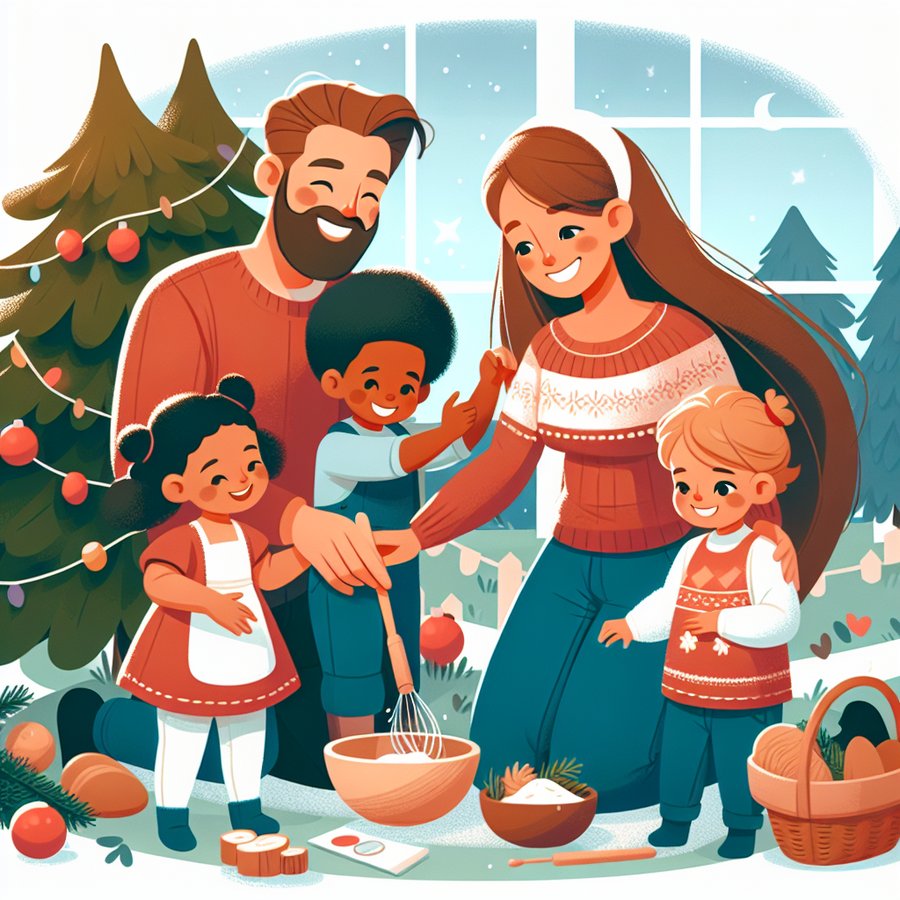Creating memorable family traditions with young children is not just about celebrating major holidays or big events; it’s about cultivating a sense of belonging, understanding, and love within the family unit. In today’s fast-paced world, where technology often takes center stage and schedules can become overwhelmingly busy, setting aside time to create and uphold family traditions can serve as a grounding force, bringing families closer together.
In this article, we delve deep into the importance of establishing family traditions from an early age, offering both creative ideas and practical advice to help your family make lasting memories. Whether you’re a new parent or looking to enrich your family’s routine, this guide will inspire and assist you in the journey towards building a legacy of love and shared experiences.
The Foundation of Family Traditions
At the heart of creating memorable family traditions with young children lies the intention to instill values, create a sense of identity, and provide a feeling of security. Family traditions, whether they are daily, weekly, or annually, offer a unique opportunity for bonding and learning. They can range from simple acts like reading a book together every night to annual family vacations. The key is consistency and meaningful engagement.
Research has shown that family traditions are crucial in developing strong family ties and supporting the emotional well-being of children. They help create a sense of belonging, which is essential for young children as they grow and navigate the world around them. Psychology Today highlights the psychological benefits of establishing routines and traditions within the family, emphasizing their role in providing comfort and security.
Creating Memorable Family Traditions with Young Children
Starting family traditions doesn’t have to be complex or expensive. The focus should be on togetherness, joy, and making every moment count. Here are a few ideas to get started:
- Create a weekly family game night where everyone gets to choose a game.
- Have a special meal together on the same day each week, where everyone helps with the preparation.
- Establish a family movie night with a rotating choice of films.
- Start a gratitude jar where family members can jot down something they’re thankful for, to be read together at the end of the year.
Remember, the goal is to create traditions that feel right for your family, taking into consideration the ages of your children and what interests them. As children grow, these traditions can evolve, but the foundation of love and togetherness will remain constant.
Benefits of Family Traditions
Engaging in family traditions has numerous benefits that extend beyond the immediate joy of the activity. They contribute significantly to a child’s emotional and social development. These traditions help in crafting a family’s unique story, giving children a sense of history and connection to their past. Moreover, they aid in building resilience by providing predictable structure amidst the chaos of life.
Importantly, family traditions offer a way to pass down cultural heritage and values, acting as a bridge between generations. They also provide a fantastic opportunity for learning, whether it’s cooking a traditional meal together, exploring nature, or volunteering as a family. These experiences are invaluable in teaching children about empathy, responsibility, and the importance of community.
In conclusion, creating memorable family traditions with young children is a beautiful journey that strengthens the family bond and provides a sense of continuity and belonging. By incorporating simple, meaningful traditions into your family life, you’re not only creating joy in the moment but also laying the groundwork for a lifetime of cherished memories. Let these traditions be a testament to your family’s love, resilience, and unity.
For more resources on navigating family life and building strong bonds with your children, visit our articles on Navigating the First Holiday Season with a Newborn, Maintaining a Healthy Relationship After Baby Arrives, and Creating Family Traditions with Your Newborn.













